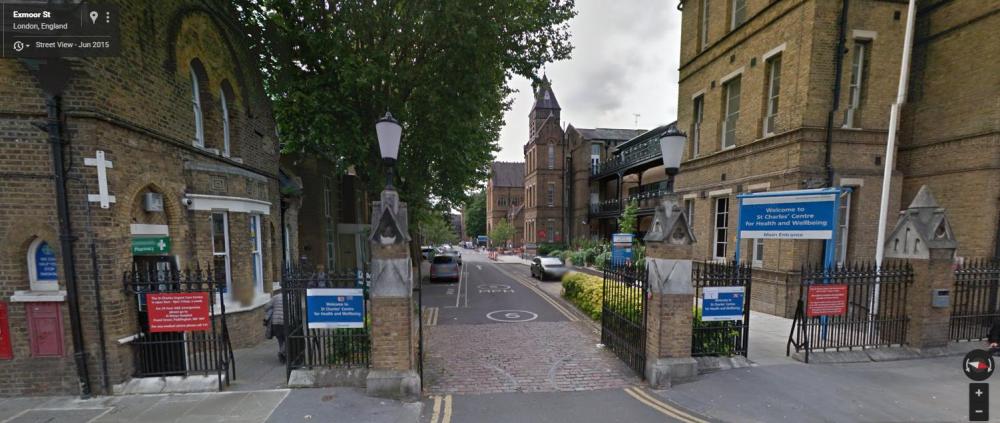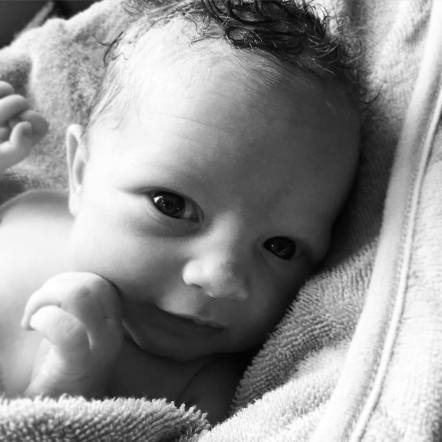We moved to London when I was 12 weeks pregnant. Obviously the move had been planned for some months prior… but some things aren’t always planned. Yes, new company, new job, new continent, new city, AND a new baby! All with no local family or friends (yet).

To complicate matters, I have a congenital heart condition that makes me a high risk pregnancy… though in the words of my beloved cardiologist Dr. Ami Bhatt back at Massachusetts General Hospital (MGH) in Boston, “[You’re] the lowest high risk pregnancy out there.”
Needless to say, the first thing I did when we found out I was pregnant was to research what giving birth in the UK would be like. There wasn’t a lot out there because everyone just knows how the NHS works, or learns about it in their NCT classes. This post is intended to give you, dear friend, reader, future/current expat, insight into the beast that is the NHS, at least when it comes to childbirth.
The Basics
You pay for the NHS – it’s not free. It’s just that the payment comes as a percentage of your paycheck – i.e. it’s a tax. I was a little annoyed when I pushed back on having an extra appointment, and the doctor said, “it’s free, so why does it matter?” A. It’s not free. B. My time is worth something. I still like him. But the point is, you don’t have to pay or get invoiced for most medical care. Think about the cost savings to the system there alone!
To get medical care, you have to register with a local General Practitioner, otherwise known as a GP or doctor’s practice. This is a PIA if you’re new to the country because you don’t have an NHS number or proof of address, though technically neither of those things should prevent you from registering. All care is given based on your home address – so everyone sees a GP near home, not work. And, typically the entire family goes to the same GP practice. There aren’t pediatricians (unless you need a specialist or have private insurance).
Obviously one of the first administrative things I did was find a GP since I had a rather, erm, pressing medical condition. I ended up at Barlby Surgery at St Charles Hospital, mostly because they got good reviews online (yes all practices are review, major plus!) and you could pre-register online. Weirdly they still have nuns who work there; that or another word for Nurse is Sister. We all know how confused I get by titles.

St Charles Hospital – a religious compound slash health care center around the corner from our first flats in North Kensington.
Downside: My GP had the personality of a paper bag. No, less than that – a bag crinkles. He was like a sheet of flat white paper. I couldn’t imagine him interacting with a toddler successfully, but he asked me all the questions and finally agreed to refer me to my hospital of choice because….
When you need something major – like to see a certain specialist, get an operation, or say, give birth, you are referred to a local hospital. You can ask to be referred to a particular place or complete a self-referral in some cases. My doctors in the US recommended the cardiology practice at the Royal Brompton Hospital, but they provide prenatal care in conjunction with the Chelsea and Westminster Hospital, so that’s where I went. Well, tried to get referred but the paperwork didn’t go through so I self-referred. Sadly, this was not close to either of our flats – but was only 30 minutes from work.
Yay! After about 4 weeks of effort and phone calls and visits, I had a GP, an NHS number, and a hospital for antenatal care.
Antenatal or Prenatal Care
The Brits are fancy, so they don’t call it prenatal care, it’s Antenatal Care. But as you may have heard, most antenatal care, birth services, and postnatal care are given by midwives. Midwives basically seem to be nurses trained specifically on childbirth, going through separate midwifery training. Essentially they seem like expert nurses at childbirth, so a little different than the US where there’s more of a hippy association (though I’m sure they are also experts at childbirth). In the UK, they’re very, very prevalent. I saw no nurses, just midwives, doctors, students, and techs.
I saw both a midwifery team and attended the OB/Cardiac clinic where I saw many doctors in a hot room. The midwives did the typical prenatal tests and checks; the OB/Cardiac clinic did some of that too, and a bunch of special cardiac things like asking “have you experienced any cardiac symptoms this week?” At first I had appointments with both, but thank goodness the OB/Cardiac team said I just had to see them. I saw the same high risk OBs every week, but the cardiac docs varied so I had to repeat myself and/or heard the same messages from them visit after visit.
When I talked with Brits about the NHS, the most reasonable complaint I heard was that coordination of care across different practices / specialties was non-existent or difficult if it wasn’t overt, like the OB/Cardiac clinic. I definitely found this to be the case – it’s kind of like everyone has their role and does it, and oh that’s nice that someone else is doing something. You have to be the connection point, which I guess isn’t totally unreasonable… but it is a little ridiculous that I had to lug around paper medical records to every appointment (even though I had an Electronic Medical Record as well). The doctors / midwives had to fill out both the EMR and the paper records for each visit!
If you didn’t have your paper records, you couldn’t be seen in 99% of cases (excepting blood work and ultrasounds). Clearly I forgot my paperwork a few times. More on that later.
Anyway – the actual care itself was good. From 13 weeks pregnant to about 34 weeks, I had regular check-ups every 4 weeks. That’s right – just every 4 weeks even though I was high risk. In reality, between the scans and bloodwork and check-ups, I was at the hospital every other week. Once – three times in one week because they couldn’t coordinate appointments to all be on the same day.
It was a combination of less prenatal care with more. Maybe it could be categorized as more scans and tests, but fewer general visits..? For example Baby #2 – aka Vivian – had two fetal echocardiograms (anatomical scans of the fetus’ developing heart to make sure it was normal) before she was born! In the US, it was just one, but then another right after birth. I also had more regular ultrasounds – 19 weeks, 26 weeks, 32 weeks, and 36 weeks – all to make sure Baby #2 was growing appropriately (cardiac patients’ babies tend to be lower birth weight). And lots of blood tests thanks to an early slightly high glucose test (tip: don’t drink juice and eat gummi bears prior to your GP visit).
The other most obvious difference between US prenatal care and UK antenatal care was that the Brits don’t care about pregnant women’s weight. That’s right, I was weighed only at my first GP appointment. I don’t even know what my final weight was before giving birth! I was told they “consider it old fashioned” to be concerned with weight. I don’t have a clinical opinion on this (nor am I qualified to give one), but it was nice not to stress or think about it too much. I still weighed myself a few times out of habit… but I really liked not focusing on that. Plus we don’t have a car here so I knew I was getting plenty of exercise.
I suppose they just figure the weight gain is something to be worried about after the baby is born. Speaking of which, perhaps it is time to break out the ole scale. Or maybe I should wait until I can walk more than 50 feet / 15 minutes at a time.
That, my friends, is all for now. The next post will cover exciting topics like: “Just what is this NCT class everyone talks about?” And, “Things besides paper medical records that are old fashioned,” and “Random other differences between the US and UK medical care.” Fascinating, I know.
Now I must take care of my 6 day old infant. Isn’t she gorgeous?

3 day old Vivian Hazel – healthy and happy product of the NHS. Or at least the care received through the NHS.


FABULOUS photo. She is gorgeous. So glad everything turned out OK. And we were there to welcome Vivian to the world.
LikeLiked by 1 person
I have been wondering how different the health care would be there, so thanks for sharing your experience!
LikeLike
Love reading about everything it’s very interesting ! I never knew you had a heart issue .
LikeLike